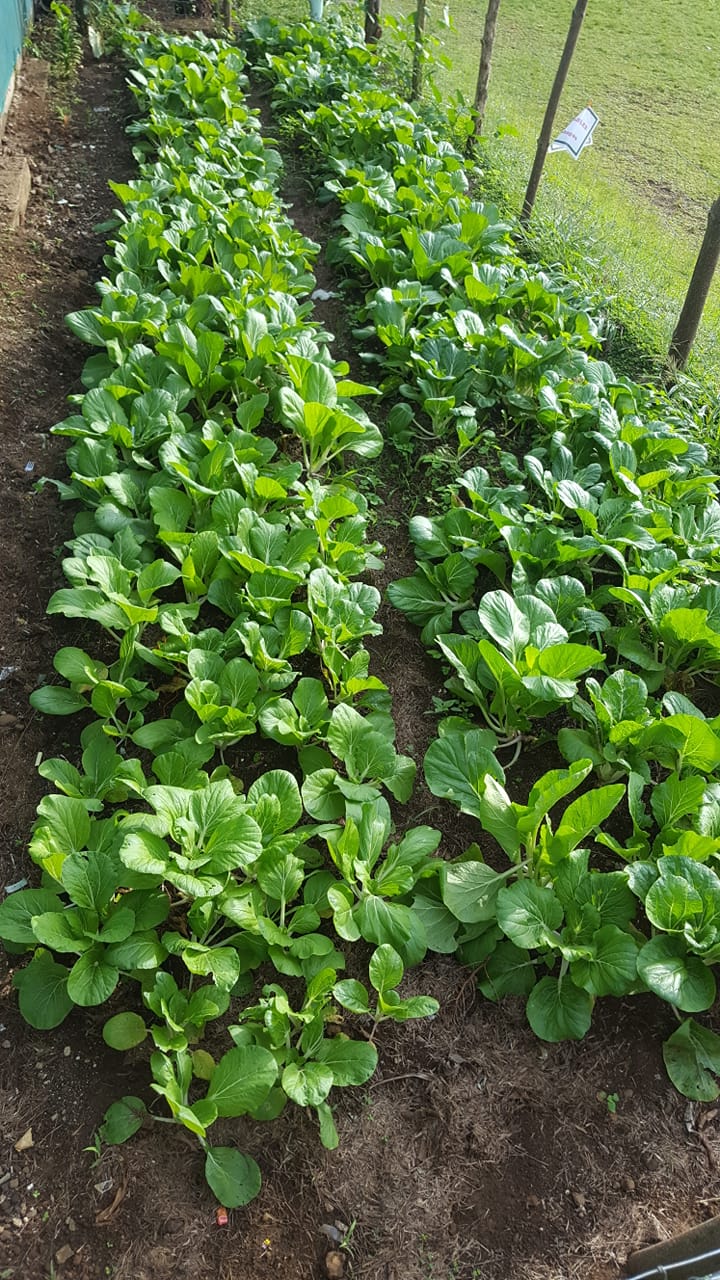Students learning as they grow
 By Talaia Mika
•
17 September 2019, 2:00PM
By Talaia Mika
•
17 September 2019, 2:00PM
Thousands of primary school students are growing their own vegetables in order to learn about sustainable and healthy ways of living.
The Strengthening Multi Sectoral Management of Critical Landscapes (S.M.S.M.C.L) project is overseen by the Ministry of Natural Resources and Environment (M.N.R.E.).
It aims to support for local household and wider community actions to reduce pressures on natural resources from competing land use, the Ministry says.
At Magiagi Primary School, the staff and especially the students have been tending to their vegetable gardens in the name of improving their own health, but also benefiting financially, educationally and environmentally.
According to a 13 year old Year 8 student, Elver Taavili, vegetable gardening was more than just education as it has given her the capability to convey her experience in gardening to her family and village.
"Before in my family [and] community, I [had] no idea how these things work and I never tried them out and ever since we were approached by this important project, I am now starting to extend it out to my family and in my village. I also intend for it to help my family financially and for their sustainable health," she said.
"If [there is lots of produce], we use the vegetables to make healthy soup for the students in our school and the importance of this project is for the students to learn how to plant and grow a vegetable using different methods such as growing cabbages with chicken poop.
"I myself just realised that and I'm learning a lot from this whole project as if ever I grow older and have no job, I can use these experiences I've learned to make money out of it."
"Our school is becoming addicted and in growing vegetable such as cabbages, corns, beans, letters and pumpkins and we're financially benefiting from it that we sell and buy from it to keep it growing."
A staff member, Apiseta Samuelu, said their school started off with about 10 vegetables few months ago but the garden has since expanded and became a success, with the school even starting to earn money from it.
"When we first started the project and we [always had] intentions to extend it," she said.
"It always pushes us to be motivated every time [it's] vegetable season because not only [has] the M.N.R.E. [given] us the most attention for being honest with our work but also we feel that it's a great initiative for the students to have something to look forward to and to help them improve their health too".
Most schools are participating in the project. Another step is to take the outdoor garden to a greenhouse Mrs. Samuelu said.
"It's very educational for the students as they're learning about the agriculture which is everyday life in Samoa and they are enjoying gardening," she added.
According to a report by the M.N.R.E, the project was established to ensure land degradation was addressed through sustainable landscape management.
The Government's long-term goal is: "Samoa’s productive landscapes are protected and sustainably managed to mitigate land degradation and to increase soil carbon sequestration so as to contribute to poverty alleviation and mitigation and adaptation to climate change impacts".

"In Samoa’s efforts to ensure that its critical landscapes are protected, there is an integrated focus by [the] national Government and funding partners on landscape management to reduce land degradation and promote nature conservation while increasing sustainable local livelihoods," the report said.
The project's main aim is to provide communities with the benefits of better management of traditionally owned lands that comprise different ecosystems, forms of agriculture, fisheries and livestock. Local households are also being targeted.
The S.M.S.M.C.L Project is a USD$4.9m million initiative by the Government of Samoa over four years. It is supported by the United Nations Development Program and funded by the Global Environment Facility.
 By Talaia Mika
•
17 September 2019, 2:00PM
By Talaia Mika
•
17 September 2019, 2:00PM











